High Court judge Justice Brian Cottle, on Friday, denied an application by the Crown to allow a third trial of two men accused of a 2007 murder.
The men, Che “Ragga” Bute, 39, and Azari “Nines” Ash, 34, of Redemption Sharpes, walked out of the High Court as free men, after 12 years in prison.
They had been in custody since 2010, when they were charged in connection with the murder of fellow villager, Lloyd Samuel aka “Lazarus”, “Lazo” and “Hawkie”, 27.
Samuel was shot in the head while reversing his vehicle in his yard during the pre-dawn hours of Dec. 21, 2007 and died in hospital four days later.
In July 2011, a jury found Bute and Ash guilty of charges of murder, possession of a firearm to commit an offence, possession of a firearm with intent to injure, and unlawful use of a firearm.
They were convicted based on the evidence of Uroy Robinson, who came forward in 2010 and told police that he had been present when Ash and Bute planned the murder.
After the July 27 conviction, Justice Frederick Bruce-Lyle sentenced the men to life imprisonment. The men’s lawyers, Carlyle Dougan, KC (King’s Counsel) and Jomo Thomas immediately signalled their intention to appeal.
In May 2014, the Court of Appeal quashed the convictions and ordered a retrial.
The men were again remanded in custody and were arraigned on Sept. 20, 2014, and pleaded not guilty.
By this time, the main witness, Uroy Robinson had died and the prosecution sought to have his evidence from the first trial read into evidence at the second trial.
The second trial took place before Justice Brian Cottle in November 2017 and the jury failed to agree on a verdict and a mistrial was declared.
Both accused were remanded in custody.
When the matter was listed for trial in June 2019, one of the defence lawyers indicated that they would object to a third trial.
Late last year, the prosecution and defence presented written submissions regarding the application to stay a third trial.
Kay Bacchus-Baptiste and Shirlan “Zita” Barnwell represented the defendants and Karim Nelson appeared for the Crown.
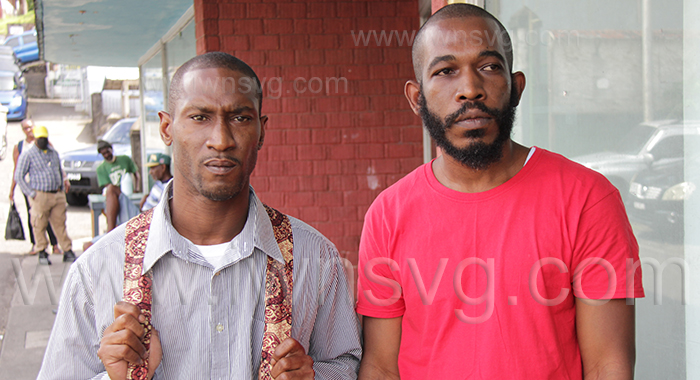
“inordinate delay?”
In handing down his ruling, Justice Cottle pointed out that the defence argued that Bute and Ash had been in custody for more than 11 years, during which time they had to go through two trials and a Court of Appeal hearing.
They reasoned that the proceeding against the defendants should be stayed because of the “inordinate delay” since they were initially arrested, adding that in all of the circumstances, it would be an abuse of process.
The defence reasoned that the prosecution had failed on two occasions to secure a conviction of the accused.
Further, in the third trial, Robinson’s evidence would be adduced by reading into evidence his testimony from the first trial.
The defence counsel argued that there was no other compelling identification evidence and no fresh evidence would be led to improve the case for the Crown.
Added to this, the defendants were unable to contact Maurice Clifton who testified on their behalf at the second trial.
They argued that the effect of all this makes it “oppressive and unfair” to try the accused men again.
A stay of the proceedings would be the appropriate remedy, the defence counsel argued.
‘no general prohibition’ against a third trial
However, the Crown pointed out that there is no general prohibition against a third trial, even where two juries had failed to agree upon a verdict.
They, however, noted that that jurisdiction has to be exercised “with extreme caution”.
To support its submission, the Crown cited the 2010 case of the King against Bell, which points out what the court must consider when faced with an application for a stay of a second retrial.
These factors are that the alleged offence involved a crime of extreme gravity that has undoubtedly occurred, and that the evidence against the defendant on any fair-minded objective judgment, remains very powerful.
Justice Cottle said that there were many factors that contributed to the delay of the trail, including the transcript and the COVID-19 pandemic.
He further noted that one of the men had changed lawyers and the court had to allow time for the new counsel to become familiar with the case.
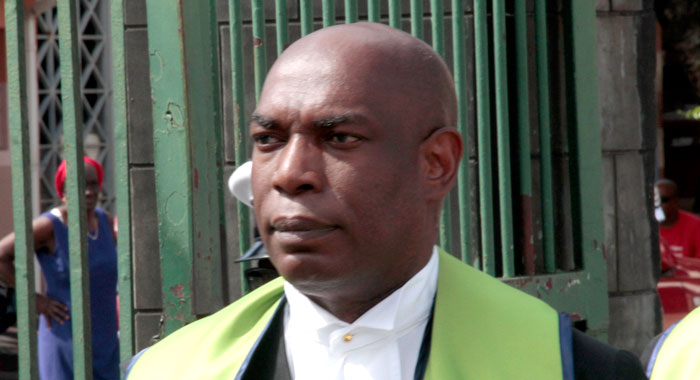
Justice Cottle said that in the King v. Miguel, a 2013 case from Antigua, the defendant argued that the delay had inordinately prejudiced him to the point that a fair trial was no longer possible.
The judge in that case was willing to grant a stay on the basis that no trial had taken place within a reasonable time, but only where the effect of the delay was to render a fair trial impossible.
Justice Cottle pointed out that in the extant case the defendant noted that 11 years had passed since their initial arrest and argued that that, in itself, was grounds for real concern.
They further argued that they have not been able to contact Clifton, who had testified on their behalf at the second trial.
The judge noted that the men had said that Clifton lives in Toronto, Canada but gave no details of their efforts to contact him.
Justice Cottle further said that in the case of Bell, who was convicted at a third trial when two previous juries had not been able to agree on a verdict, the Court of Appeal upheld the conviction and dismissed the appeal.
The judge in that case, however, said that the jurisdiction allowing such a trial in such circumstances must be exercised with extreme caution.
In the case of Bell, the court further said that second retrial must be confined to the very small number of cases “in which the jury is being invited to address a crime of extreme gravity, which has undoubtedly occurred and in which the evidence that the defendant committed the crime to any fair minded objective judgment remains very powerful”.
Justice Cottle noted that in the case of Ash and Bute, only one jury had failed to agree upon a verdict, as the jury in the first jury unanimously convicted the men.
He said that the crime undoubted occurred, adding that in his view, Samuel’s murder is a crime of extreme gravity.
The judge noted that defence counsel had cited the case of Trimmingham v. the King and made the point that murders can be otherwise than the most exceptional or the worst of the worse.
Justice Cottle said he agrees that murders can vary in their depravity, but said any murder must be a crime of “a crime of extreme gravity though it may not amount to the worst of the worst case”.
He pointed out that the case against Ash and Bute is that a witness was in a house with them and heard them as they planned to shoot Samuel.
“This is powerful evidence,” Justice Cottle said, adding that if a jury accepts this, they can convict the defendants on this point alone.
He, however, said that he would not grant a stay of prosecution on the basis of delay only.
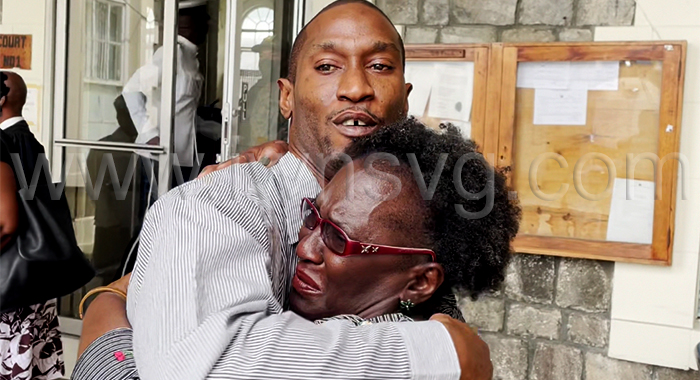
‘wrong in principle and … an abuse of process’
The judge then went on to consider the argument that a fair trial is not possible, having noted that the sole key witness has not communicated with the defendants for more than four years.
Justice Cottle further pointed out that the defence has argued that the evidence at the second retrial would be the same as at the first, based on which the jury was unable to arrive at a unanimous verdict.
They argued that another trail, using the same evidence, could be unfair and oppressive and the court should not allow it.
In arriving at his decision, the judge considered the 1999 case of Curtis Charles and Others v. The State, in which the Privy Council allowed the appeal and quashed the convictions of the accused men who had been convicted after a third trial.
Justice Cottle said that like in the case of Ash and Bute, the men had first been found guilty and the Court of Appeal had ordered a retrial.
The retrial ended in a hung jury and the men were convicted at the end of a third trial.
In that judgement, Lord Slynn of Hadley said it must be stressed that the complaint was not just on the grounds of delay, but that it was also quite wrong for the appellant to be tried for the third time after many years, when one conviction had been quashed and another jury was unable to arrive at a unanimous verdict.
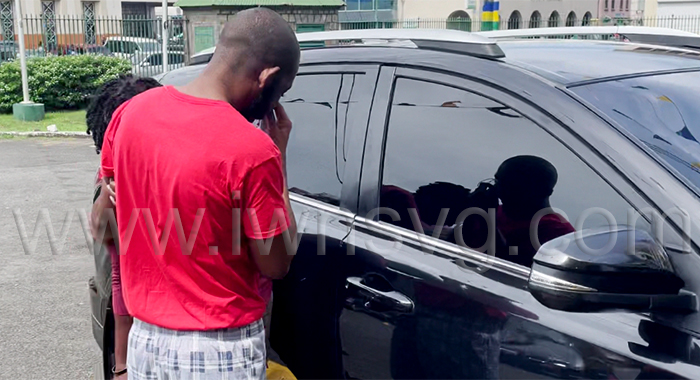
Lord Slynn also said in that case that it might be contrary to due process and unacceptable that the prosecution, having failed twice, should consider trying to secure a conviction.
Lord Slynn further ruled that both factors are to be considered, adding that the combination of the two factors required the trial judge to stay the trial as it was wrong in principle and constituted an abuse of process for the prosecution to continue.
“I am of the firm view that this was a very serious crime,” Justice Cottle said, adding that he was equally of the view that it is in the public interest and the interest of justice that the matter be tested and a verdict obtained.
“That said, I’m confronted by the decision in Charles and Others v. The State,” he said, adding that while he accepts that each case must be considered on its own merits, “I struggled to find any grounds to distinguish the instant case from Carter’s case.
“And so my own views notwithstanding, I must follow the precedent laid down by the learned lord His Majesty’s Privy Council.”
Justice Cottle said that like the Privy Council, he had found that it would be contrary to due process to permit the continuation of the prosecution of the men.
The judge granted the application, ordered a stay of the prosecution of both men and told them they were free to go.
Each of the men exited the courtroom into the arms of his crying mother outside.




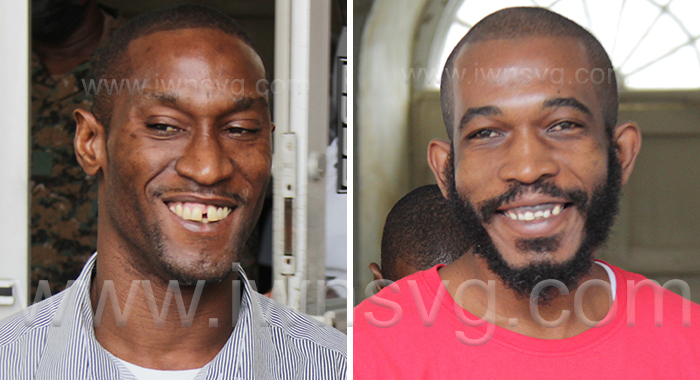


Sadly, justice delayed is justice denied to all parties involved on all sides.
Education is the key! Then you won’t catch gingivitis. Education is the key! Then you won’t try the same case three times. Education is the key! Then you will recognize con-men-politicians. Education is the key! Then you will recognize Sexual predators. Education is the key to overcoming incompetence. Education is the key to bringing down unemployment. Education is the key! Then you won’t try a shooting-and-lynching in a magistrate court and a traffic violation in a Serious court. Education is the key! Then you won’t prosecute the victim, who was shot in his yard, and acquit the perpetrator.